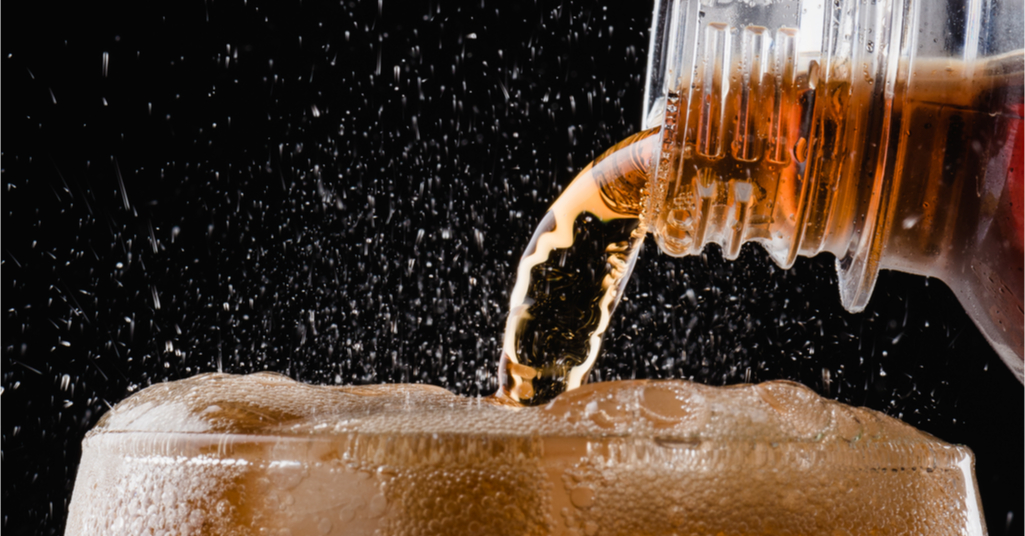The increasing advertisement and trending reels or videos on social media promoting caffeinated beverages has definitely grabbed attention among youngsters but this is merely raising health hazards. In India, it is already a billion-dollar sector that is growing at a pace of 20-25% each year.
In India, the Food Safety and Standards Authority of India (FSSAI) plays a crucial role in ensuring the safety and quality of food and beverages consumed by the public. This includes setting standards for various categories of food products, including caffeinated beverages like soft drinks and energy drinks.
Here’s a breakdown of the key FSSAI regulations concerning these drinks:
Caffeine Content
- Minimum: All caffeinated beverages must contain at least 145 mg of caffeine per litre. This ensures a base level of the stimulating effect associated with these drinks.
- Maximum: The caffeine content cannot exceed 300 mg per litre. This limit helps to prevent excessive caffeine intake, which can have adverse health effects.
Labeling Requirements
- Caffeinated Beverage labeling: Any beverage exceeding 145 mg/L of caffeine must be labeled as a Caffeinated Beverage.
- “High Caffeine” declaration: Energy drinks specifically require a prominent declaration of “High Caffeine” along with the exact caffeine content.
- Consumption warnings: Labels must display advisories stating:
- “Consume not more than 500 ml per day.”
- “Not recommended for children, pregnant and lactating women, persons sensitive to caffeine.”
Optional Ingredients and Limits
- Sweeteners and flavors: These can be added, but manufacturers need to adhere to FSSAI-specified limits and obtain authorization for any new ingredient.
- Vitamins: The use of vitamins like B1, B2, B3, B6, and B12 is permitted, but the amount cannot exceed the recommended daily allowance (RDA) per serving.
- Amino acids: FSSAI allows the use of certain amino acids like Taurine and Inositol, but within prescribed limits.
- The water used in these beverages must comply with FSSAI standards for packaged drinking water.
- Manufacturers must obtain FSSAI licensing and adhere to all food safety regulations.
By understanding and adhering to these FSSAI standards, both manufacturers and consumers can ensure the safe and responsible consumption of caffeinated beverages in India. Remember, responsible consumption is key, and always prioritize your health and well-being when enjoying these drinks.
Conclusion
This is how the Food Safety and Standards Authority of India plays an essential part in food products or drinks; it not only helps the food business operator achieve consumer trust but also helps the client trust such a brand that the FSSAI has approved: https://www.fssai.gov.in/. Contact the experts at Vakilsearch to get your FSSAI License registration today!
| Category | Description |
|---|---|
| Caffeine Content | Minimum: 145 mg/L, Maximum: 300 mg/L |
| Labeling Requirements | Caffeinated Beverage Labeling: > 145 mg/L, High Caffeine Declaration: Energy Drinks (with exact content), Consumption Warnings: Consume not more than 500 ml per day. Not recommended for children, pregnant & lactating women, caffeine-sensitive individuals. |
| Optional Ingredients and Limits | Sweeteners and Flavors: As per FSSAI limits, with authorization for new ingredients, Vitamins: B1, B2, B3, B6, B12 (within RDA per serving), Amino Acids: Taurine, Inositol (within prescribed limits) |
| Additional Points | Water: Comply with FSSAI standards for packaged drinking water, Licensing: FSSAI license and adherence to food safety regulations |
FAQs
What are the license standards for energy drinks?
The FSSAI standards for energy drinks encompass regulations concerning ingredients, additives, labelling, and packaging, ensuring compliance with specific quality and safety criteria to protect consumer health and well-being.
What are some of the other important license regulations for soft and energy drinks?
Apart from energy drink standards, significant FSSAI regulations for soft and energy drinks include permissible ingredients, maximum limits for additives, labelling requirements, such as nutritional information and warning labels, and specifications for packaging materials. Adhering to these regulations is crucial for maintaining product safety and quality.
How can I check if a soft or energy drink complies with the standards?
Consumers can verify compliance with FSSAI standards by checking for the FSSAI license or registration number on the product packaging. Additionally, ensuring that labelling includes all required information, such as ingredients, nutritional facts, and warning labels as specified by FSSAI regulations, helps confirm compliance.
Where can I find more information about FSSAI regulations for soft and energy drinks?
For further details on FSSAI regulations for soft and energy drinks, consumers can visit the official website of the Food Safety and Standards Authority of India. Additionally, relevant publications, guidelines, and resources available on the website provide comprehensive information. Direct contact with the Food Safety and Standards Authority of India can also address specific inquiries or clarifications regarding regulations.
What is Section 25 of the FSSAI Act?
Section 25 of the FSSAI Act empowers the Food Safety and Standards Authority of India to make regulations concerning various aspects of food safety and standards, including those related to soft and energy drinks. This section grants Food Safety and Standards Authority of India the authority to formulate regulations to ensure compliance with established quality and safety standards.
Also, Read:
- How to start a hotel in India?
- Complete guide to process FSSAI license renewal
- How to start a pickle business?
- Difference between FSSAI and AGMARK

